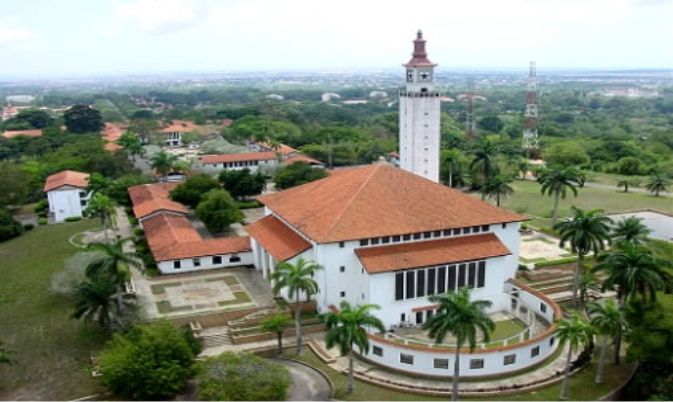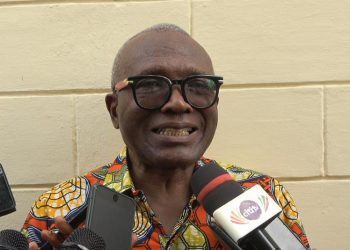The Dean of Students at the University of Ghana, Professor Godfred Bokpin has made the case for some students to pay higher residential fees as the university deals with accommodation challenges for students.
On the Citi Breakfast Show, Prof. Bokpin acknowledged the systemic failings that have influenced the accommodation problem that has persisted for some two decades.
“You can say its poor management across different levels; on the government level, from parents and from students,” he noted.
Pro. Bokpin narrowed in on the student’s role in all this arguing that the current fees regime could not sustain the school.
Residential fees for varying categories of students range from GHc853 to GHc1,790.
Academic user fees for students also range from GHc1,516 to GHc2,231 on the main campus.
But on the residential side of things, there are reports of slots costing GHc853 in the traditional halls being offered to stranded freshmen at almost four times the normal price.
The challenges have been compounded by a sub-par online registration system for halls.
For the 2019-2020 academic year, it is estimated that 10,000 new students are enrolling, to join 48,000 continuing students though some 19,000-bed spaces are available.
The school’s recent attempts to increase the fees were met with opposition from students.
These pricing constraints have hampered the school’s attempts to innovate and solve the accommodation challenges, Prof. Bokpin said in defence.
“We have been charging the same small amount we have been charging until last month when Parliament said over four years, they can only approve five percent increment.”
“You can say [private schools like Ashesi] are innovative but check the prices; whether innovation can be accommodated with that extreme pricing constraints is another thing to be discussed. Find out how much people pay at Asheshi for academic fees and for residential fees.”
In an argument that has come up during criticism of the Free Senior High School policy, Prof. Bokpin insisted that pricing levels needed to reflect the demographics of students.
“50 percent of the students we admit at the University of Ghana can pay realistically good prices that will also enable us to accommodate the less fortunate in society.”
But students have been one of the stumbling blocks to increased fees or levies to help with some development, he added.
Unsuccessful discussions have been had with students to have them pay GHc100 as a development levy.
“When we meet and we engage the SRC [Students Representative Council] and the GRASAG [Graduate Students Association of Ghana], they are the ones who don’t want any adjustment because they are in-residence. Those who feel the impact of this, they are not in-residence. They are willing to pay.”
The last major attempt at residential infrastructure expansion by the university was part of the controversial Africa Integras deal.
In 2015, the University of Ghana entered into a Public-Private Partnership (PPP) agreement with Africa Integras to invest US$64 million in the construction of the hostel. The project was structured as a 25-year Build, Operate and Transfer (BOT) contract.
Included in the deal was the construction of a 1,000 capacity student hostel to be shared between undergraduate and graduate students in the College of Health Sciences.
If completed, the Africa Integras project would have been the largest single expansion of infrastructure project in the University’s 70-year history.











